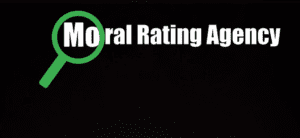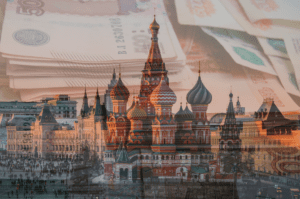
Last year saw the launch of an NGO called the Moral Rating Agency (MRA), which started with a project showing which corporations were still involved in Russia long after that country’s invasion of Ukraine. But their organisation wishes to go beyond this to use their rating system to highlight corporate moral behaviour on other critical issues, giving power to consumers, investors and shareholders, helping pressure corporations to do better.
At the end of 2022, the MRA published the ‘dirty dozen’, a list of 12 corporations who are still operating, to some extent, in Russia. MRA accuses some of these of “moral washing,” the practice of making statements to give the impression the company is more ethical than it really is. Let’s take a closer look at three of these corporations, their actions and their regulatory history.
Saudi Aramco: No moral washing
In the MRA’s dirty dozen, the Saudi Arabian state-owned oil giant Saudi Aramco were ranked second worst, due to still having a 31% share in Russia’s Novomet, a Russian oilfield services company. Saudi Arabia, and by extension Saudi Aramco, seem to be advancing their partnership with Russia, swooping in when the share prices of 3 major Russian energy companies tumbled and investing $600 million. Due to this, Saudi Aramco are not moral washing, because they are unapologetic about remaining in Russia.
In the UK, Saudi Aramco only have one enforcement case against them since 2010 with a total fine of £6,264. However, in the US, Saudi Aramco have had 150 enforcement actions against them since 2000 with fines totalling £223 million.
Johnson & Johnson: Some moral washing
The US-based corporation Johnson & Johnson was third in the MRA’s dirty dozen, as it continues to operate the J&J Institute in Moscow, along with selling pharmaceuticals and medical devices. In March 2022, Johnson & Johnson released a carefully worded media statement, focusing on the humanitarian crisis on both sides. They stated they would halt the sales of personal care products in Russia but continue on with pharmaceuticals. Johnson & Johnson could be accused of some moral washing to buy time in hopes for little scrutiny on their activities in Russia.
In the US, Johnson & Johnson have 73 enforcement actions against them since 2000 with fines totalling a staggering $14.9 billion. They are also ranked 12th out of the top 100 most penalised corporations in the US. In the UK, Johnson & Johnson have 1 case since 2010 with total fines of £4.8 million.
HSBC Holdings: Complete moral washing
UK-based bank HSBC were ranked fourth on the MRA’s dirty dozen, as they are still operating and serving customers. In July 2022, HSBC reportedly agreed that they would sell 100% of their Russian business to Expobank, which would’ve represented their formal exit from Russia. However, HSBC are yet to finalise the sale almost seven months on due to apparent hostility by the Kremlin stalling their ability to leave. Therefore, HSBC is guilty of complete moral washing as it stated it would leave but remains in Russia.
In the UK, Violation Tracker UK shows HSBC as ranking 13 out of the top 100 most penalised corporations since 2010, with a total of 15 known enforcement actions and £299 million in fines. Their enforcement record in the US is equally shambolic, with them ranking 30th out of the top 100 most penalised corporations in the US since 2000, with fines totalling $6.5 billion from 63 known enforcement actions.
The dirty dozen, enforcement history and moral washing
 All 12 corporations listed in the MRA’s dirty dozen have poor enforcement records. Some have poor enforcement records in both the UK and the US, others have worse records in the US and others in the UK. The point here is that often corporations that have been or are being slow to leave Russia also tend to have poor track records when it comes to regulatory issues. Some of the corporations, such as Johnson & Johnson and HSBC, compound the problem further by engaging in moral washing.
All 12 corporations listed in the MRA’s dirty dozen have poor enforcement records. Some have poor enforcement records in both the UK and the US, others have worse records in the US and others in the UK. The point here is that often corporations that have been or are being slow to leave Russia also tend to have poor track records when it comes to regulatory issues. Some of the corporations, such as Johnson & Johnson and HSBC, compound the problem further by engaging in moral washing.
Corporations who are breakers of regulatory rules may be more tempted to engage in moral washing to better their public image. But this is not always a given, moral washing is not black and white, there is a scale of the extent to which corporations moral wash. The takeaway here is to not always believe corporate PR statements, investigate them, notice when there is a lack of statement, and look at the corporation’s regulatory history to see their true colours.